The Games That Defined the ZX Spectrum
These are the ZX Spectrum games that helped define one of the most important gaming computers ever.
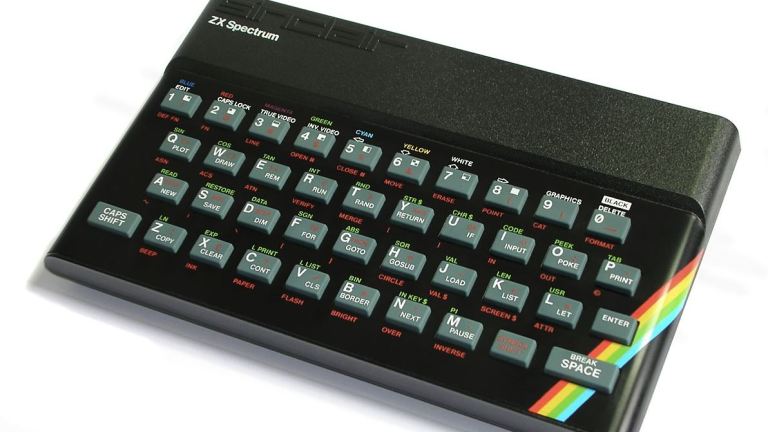
The ZX Spectrum shouldn’t have been that big of a deal. It was a budget and underpowered personal computer released at a time when the personal computer industry had more options than most people would ever need. At the very least, the ZX Spectrum’s audio cassette media format and bizarre methods of software distribution should have made its library of supported games little more than a novelty.
Instead, the ZX Spectrum became one of the most important video game devices ever made. The little computer that could found its way into a surprising number of homes and helped launch the modern British video game scene in the process. It may seem like a strange story, but when you look at some of the games that helped define the ZX Spectrum, it all starts to make a little more sense.
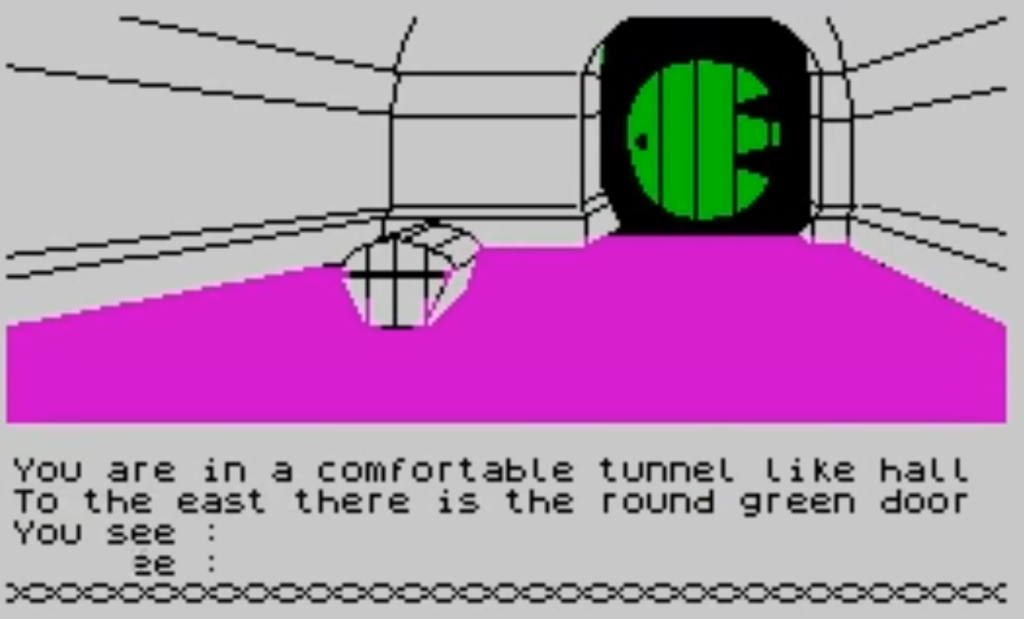
The Hobbit (1982)
This graphic adventure title wasn’t just based on the legendary fantasy novel of the same name; early copies of the game actually came with a copy of that book. At the very least, that kind of promotional tactic showcased both the game’s love of its source material and the way it aspired to reach out to a fervent fanbase that was still waiting on truly brilliant adaptations of Tolkien’s work.
The Hobbit was such an adaptation. Despite being one of the first ZX Spectrum games, this adventure title was surprisingly advanced. Its rich visuals did the best they could to convey a complex world, and its input options accounted for physics, timing, and even adjectives. Right from the start, previously wary ZX Spectrum owners knew they were in good hands.
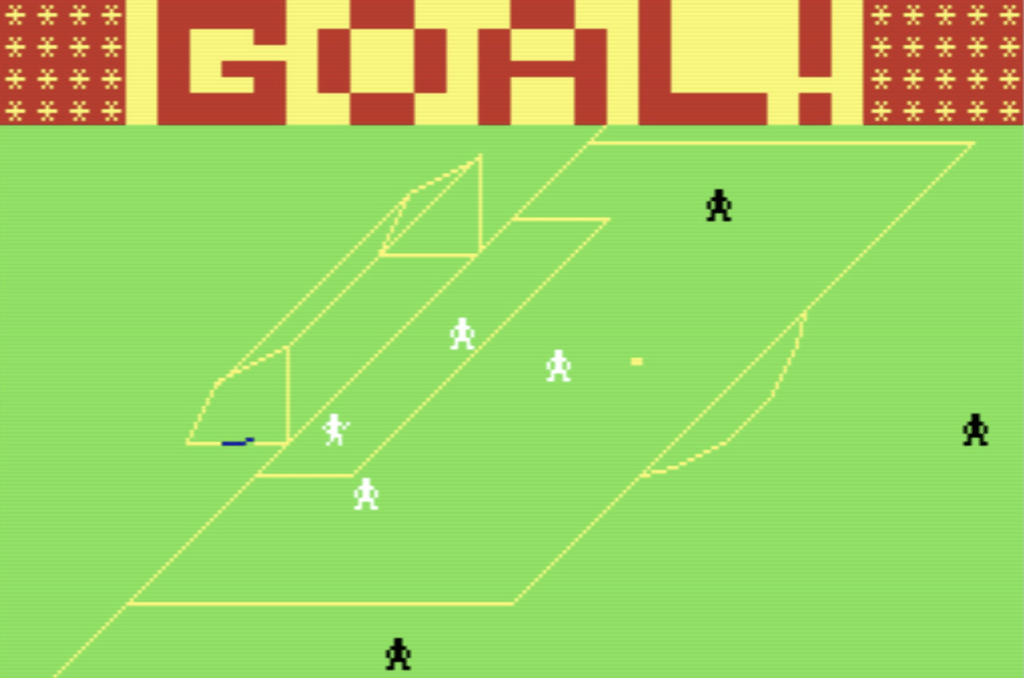
Football Manager (1982)
Another of the ZX Spectrum’s earliest titles, Football Manager lured gamers in with the promise of allowing them to manage their own team and soon became the source of countless lost hours. This title helped pave the way for not just numerous direct copycats but also the more advanced franchise management options seen in modern sports games.
Perhaps more importantly, Football Manager showed that the ZX Spectrum’s personal computer status and weaker raw technology could actually be advantages in the right hands. It may have not been too far removed from a word processor program, but Football Manager showed that great games could come from the most unlikely sources.
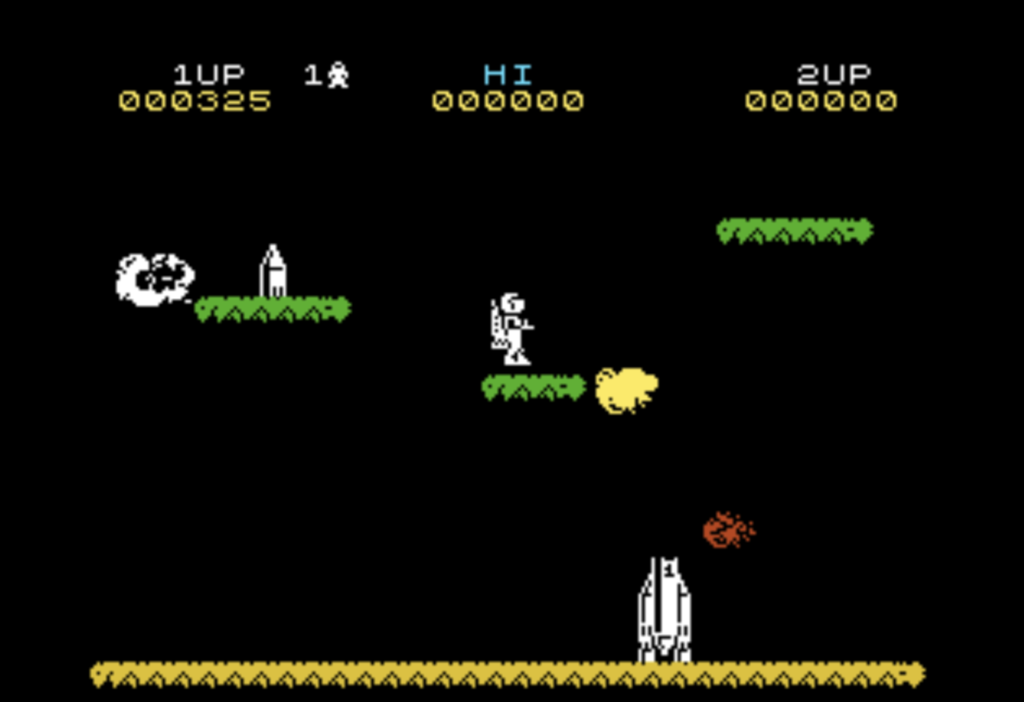
Jetpac (1983)
The most undeniable and impactful part of the ZX’s Spectrum’s gaming legacy is the way the platform helped the British gaming scene. Numerous creators from that region either started on the ZX Spectrum or can trace their roots to that device in some way. Few of those creators are more notable than Jetpac’s developer: Ultimate Play the Game.
Never heard of them? Well, a couple of years after Jetpac’s release, Ultimate Play the Game founders Tim and Chris Stamper would change the studio’s name to Rare. Yes, Jetpac was the first game from one of the most important studios in gaming history and a damn good title to boot. This action platformer made the most out of the ZX Spectrum’s capabilities and feels better to play today than some of its notable contemporaries.
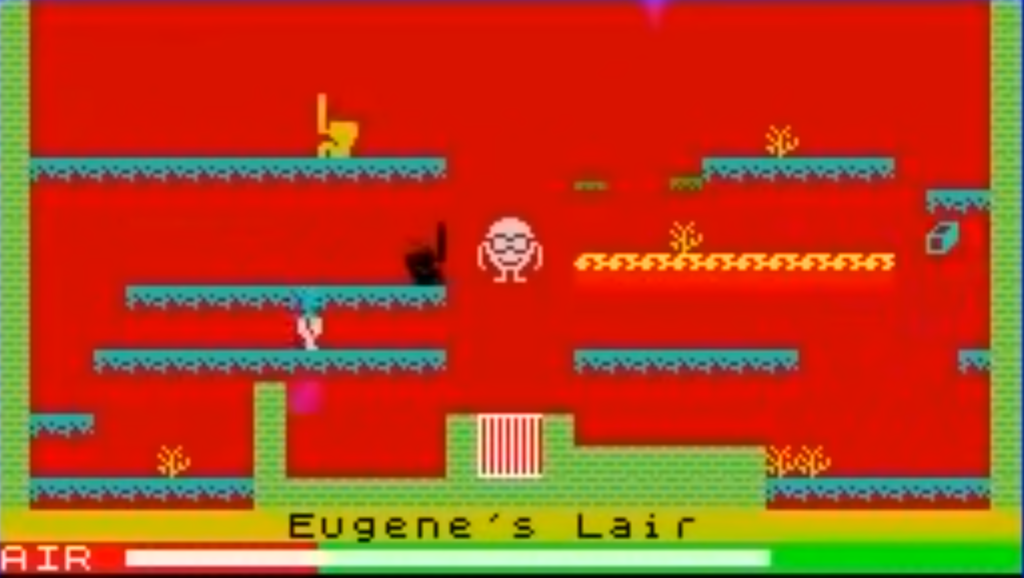
Manic Miner (1983)
Alongside Jetpac, Manic Miner was one of those early games initially developed for the ZX Spectrum that showcased how much of an impact the device had made in such a short time. This early puzzle platformer paved the way for what would become one of the decade’s most important genres and quickly shot up the sales chart. It could certainly be considered the ZX Spectrum’s most notable early system seller.
Perhaps more importantly, Manic Miner received an arguably superior sequel: Jet Set Willy. Those games showed that the ZX Spectrum wasn’t just the home of innovative new experiences but that it was a system that could be trusted to produce a legacy of quality at a time when many were wary of the floundering console gaming scene.
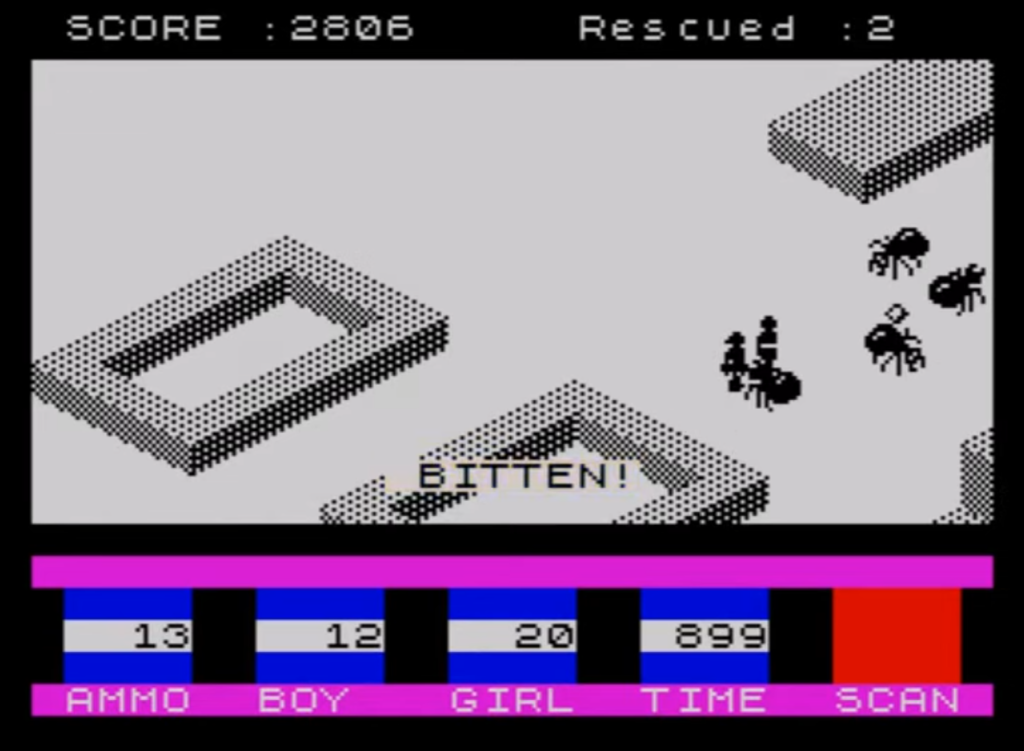
Ant Attack (1983)
Ant Attack deserves a lot of love for being the first (or, at the very least, among the first) isometric computer games. That perspective would become the source of some of gaming’s greatest experiences and would prove to be especially valuable to the ZX Spectrum. Ant Attack showed how a slight tilt of the camera could allow developers and players to see so many new possibilities.
As if that wasn’t enough, this game that saw players enter a city of giant ants to rescue their partner should also probably be considered one of the first survival horror titles. It’s one of the platform’s best overall games as well as a title that neatly showcases the ZX Spectrum’s legacy of innovation.
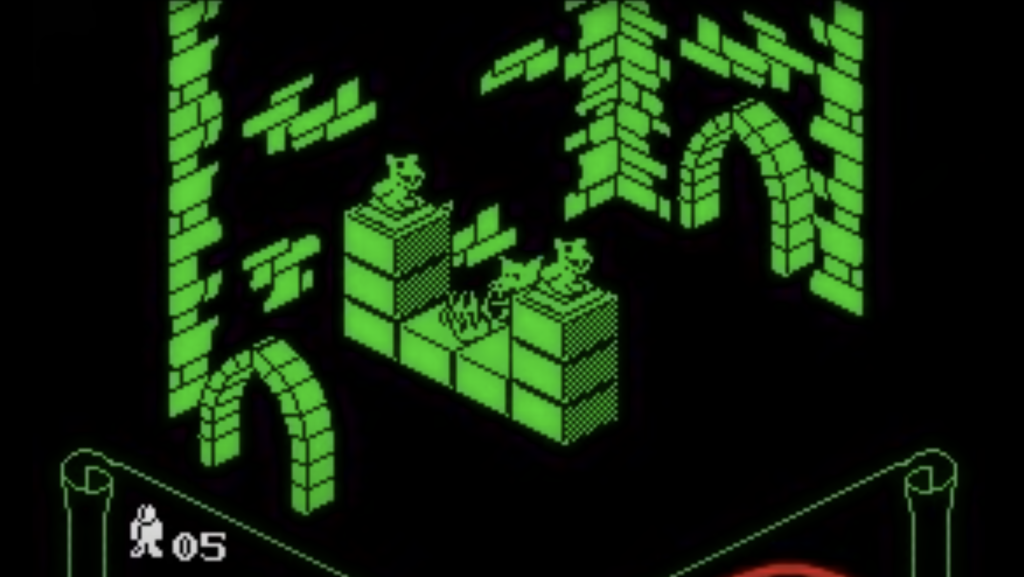
Knight Lore (1984)
As we’re about to see, the ZX Spectrum reached its peak sometime in the mid-’80s. That’s largely due to the output of a series of studios that had quickly become ZX Spectrum regulars. The aforementioned Ultimate Play the Game was certainly among those studios, and Knight Lore may just be their greatest contribution to the ZX Spectrum platform.
Arguably the ZX Spectrum’s greatest game (and certainly among its most influential), Knight Lore cast players as a man who has just been turned into a werewolf (Sabre Wulf, technically). He now has 40 days to explore a 128-room castle in order to find the ingredients needed for a cure. Another notable innovator in the realm of isometric game design, Knight Lore’s challenging puzzle-based gameplay paved the way for RPGs and strategy titles that still felt ahead of their time when they were released 10+ years later. It caused studios everywhere to start looking for answers to questions nobody had previously thought to ask.
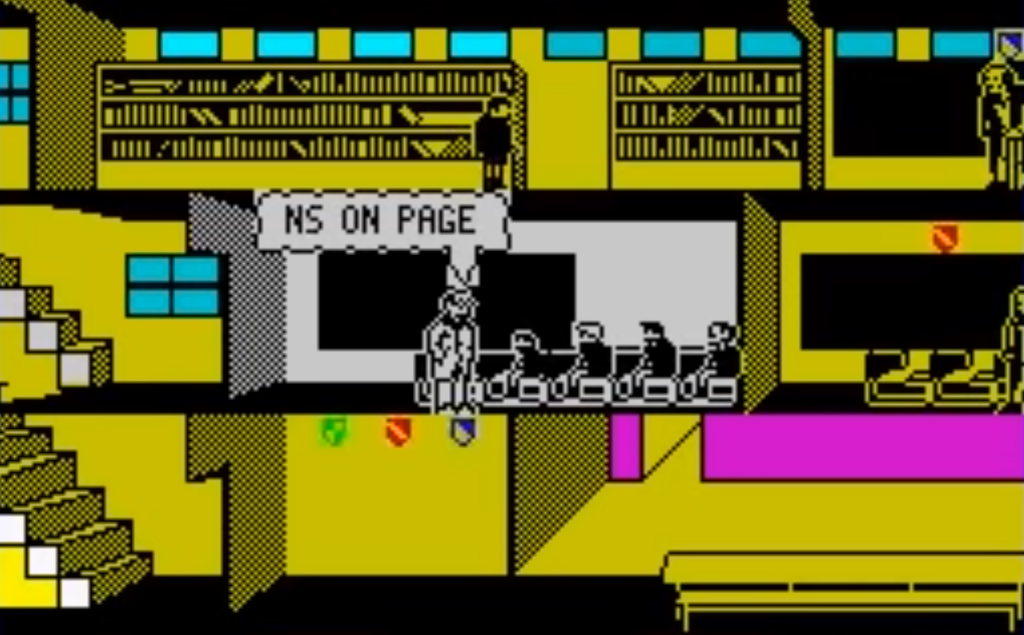
Skool Daze (1984)
At a time when fantasy and sci-fi worlds still ruled the gaming landscape, Skool Daze put players in the shoes of a student named Eric who is tasked with trying to steal his report card without getting into trouble. The idea of releasing a modern game with such a humble on-paper premise seems wild. In 1984, it was practically unheard of.
Skool Daze’s inventiveness didn’t end there. This game combined text adventure-like options and puzzles with a more active form of real-time gameplay. It was essentially trying to be an open-world game before anyone thought to put those words to that concept, and its unique sense of humor was certainly a breath of fresh air. Clearly an influence on Rockstar’s Bully, Skool Daze also showed the ZX Spectrum’s willingness to be different both out of necessity and creative choice.
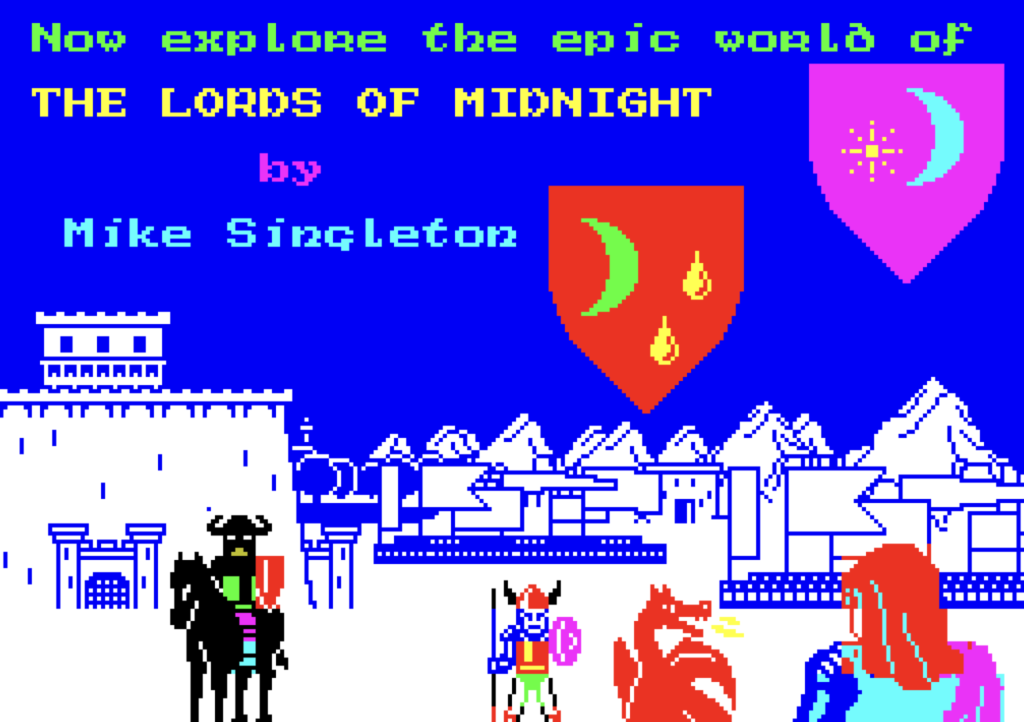
Lords of Midnight (1984)
As important as it is to understand the ZX Spectrum’s graphical limitations, you also have to understand that those limitations often inspired developers to explore creative new concepts rather than simply settling for “good enough.” Few games showcase that collective boldness as well as Lords of Midnight.
This hybrid strategy and role-playing titles asked players to complete one of two main objectives. Completing those objectives requires you to recruit and command a growing roster of heroes, but the game affords you a shocking degree of freedom when it comes to how you play and (hopefully) ultimately beat it. In its day, that level of strategic freedom and role-playing immersion stunned gamers who had few things they could directly compare Lords of Midnight to. Even today, this title encourages a level of creative thinking that you rarely see in modern major titles.
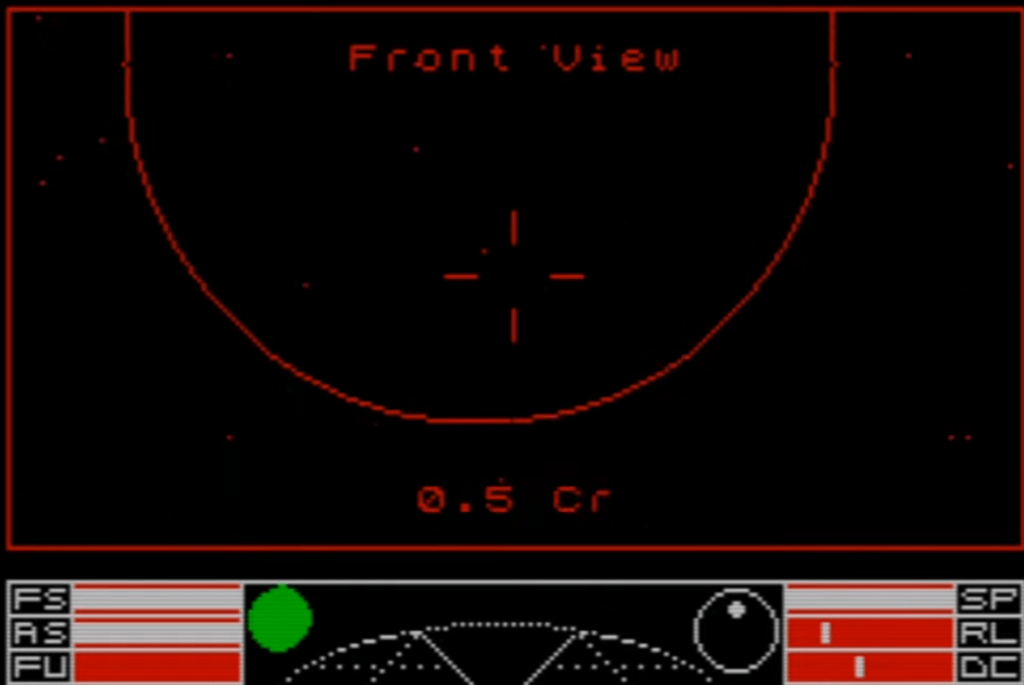
Elite (1984)
While I tried to focus on games that were either exclusive to the ZX Spectrum or started on that platform, the fact of the matter is that the Spectrum supported quite a few noteworthy ports. As time went on, ZX Spectrum owners had to rely on more and more ports. Some were good and others showcased the device’s obvious limitations.
Elite is one of the ZX Spectrum’s greatest imports and one of the platform’s finest overall titles. This incredibly ambitious sci-fi title that lets you live out your space fantasies simply shouldn’t have worked on a device like the ZX Spectrum. Yet, this port not only managed to retain most of the core elements of the Elite experience but actually features content not found in any other version of the game. The success and craft of Elite sent a clear message that the ZX Spectrum was still a major player in a rapidly advancing age of innovation.
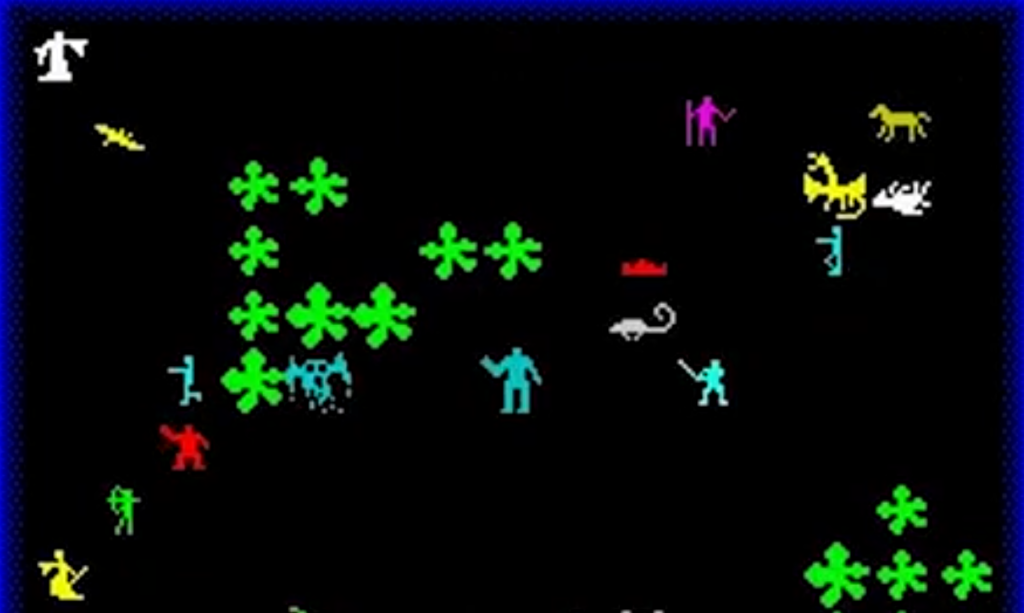
Chaos: The Battle of Wizards (1985)
Chaos: The Battle of Wizards wasn’t just one of the most notable true ZX Spectrum exclusives released at a time when ports were becoming far more common; it was an innovative and enjoyable multiplayer title released at a time when such titles were far from expected on any platform.
This turn-based game pitted up to eight wizards against each other. The goal was to eliminate the competition and be the last wizard standing. The challenge was to navigate a series of mechanical restrictions that often forced you to think several moves ahead rather than cast endless barrages of magical missiles. By trading in complex visuals for advanced gameplay, Chaos offered one of the most compelling multiplayer experiences of its era. Hell, this game is a few updates away from feeling right at home in the age of battle royales and survival titles.
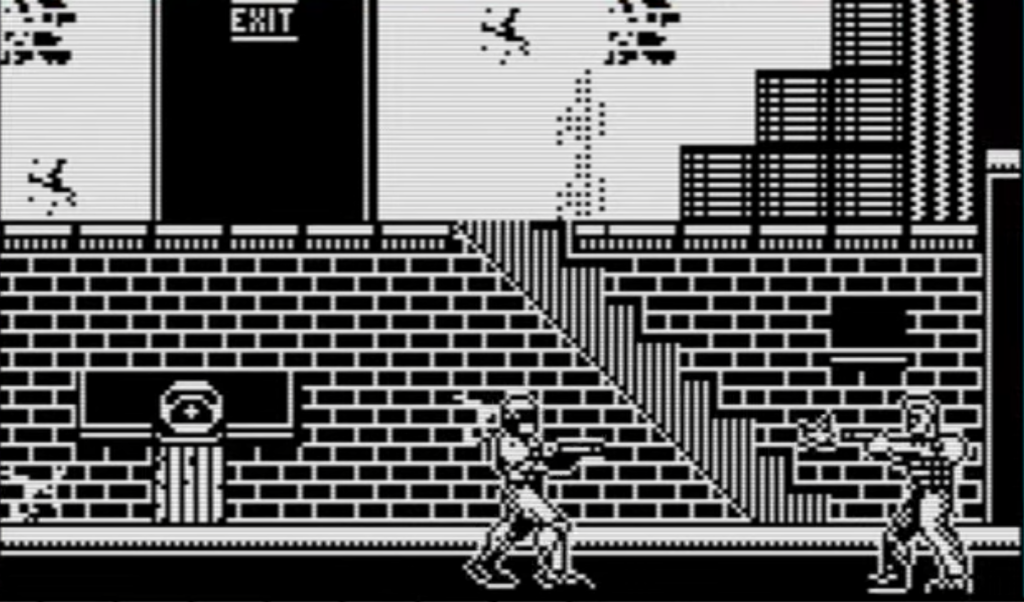
RoboCop (1988)
In some ways, RoboCop is a stand-in for the more action-focused titles that began to become more common on the ZX Spectrum scene in the mid-to-late ‘80s. While that genre was never really the platform’s bread and butter (that would probably be strategy and role-playing games), ZX Spectrum owners looking for something a bit more active began to find shooters, beat-em-ups, and sidescrollers of often decidedly mixed quality.
However, RoboCop wasn’t just at least a bit better than most of those games (its sheer variety of gameplay was pretty hard to top) but it was far more successful than most other ZX Spectrum action games. In fact, RoboCop was one of the best-selling games in Britain in the ‘80s, and the ZX Spectrum version of this game was a massive part of its overall success. It inevitably found its way into a lot of ZX Spectrum owners’ homes, and it didn’t disappoint.
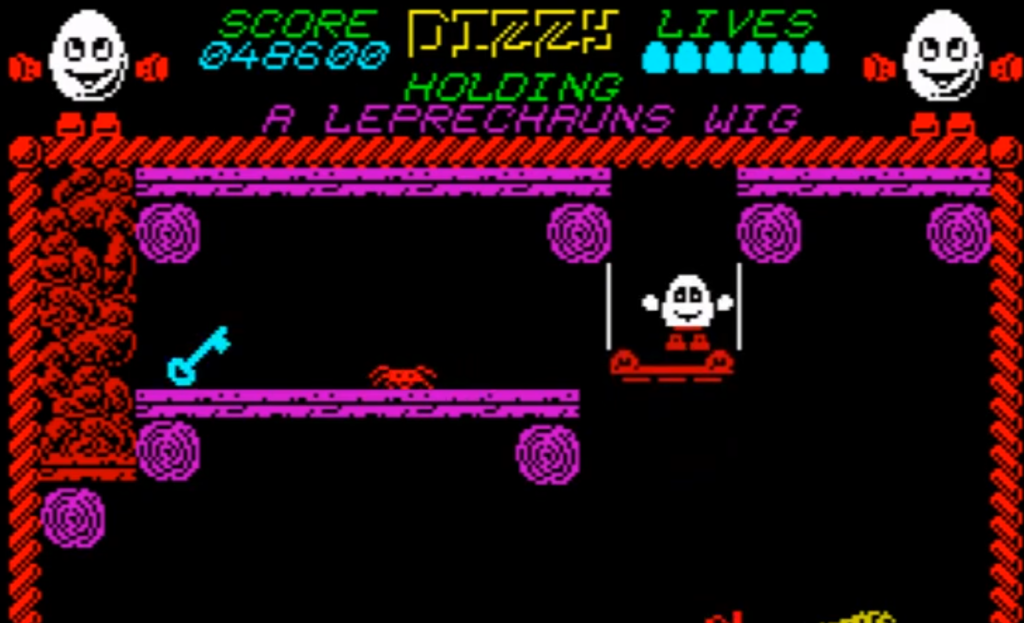
Dizzy (1987)
By the late ’80s the ZX Spectrum’s already uncertain future began to look increasingly grim. The device that had sometimes lagged behind its hardware contemporaries was beginning to feel its age. Creators formerly closely associated with the device also began to explore more lucrative and powerful devices. Many of the worst ZX Spectrum games were released during this era, and many of them were budget titles that hoped to make up for their obvious shortcomings with lower price points. It’s hard to tell the story of the device without those games.
However, I’d prefer to end on a positive by talking about Dizzy. Like many of those games, Dizzy was a budget title made by up-and-coming developers looking to use the ZX Spectrum’s accessibility, affordability, and large install base to get their idea into gamers’ hands. Fortunately, their idea was a pretty good one. Dizzy is a cute puzzle platformer with a few neat ideas and personality to spare. It would have fit very well into the ZX Spectrum’s golden days, and it certainly stood out at a time when ZX Spectrum owners were looking for hits. It was hardly the last great ZX Spectrum game, but it was one of the last great ones that really embodied the spirit of the device.
The ZX Spectrum would continue to play host to games of wildly varying quality until it was discontinued in 1992. The fact that it feels like the device lasted for far longer than that speaks to the enormity of its cultural impact. Many looked at that little computer that could and saw not just memories but a source of timeless gaming experiences.
If you’re looking for more historically notable ZX Spectrum titles, here are a few games that I just didn’t have space for:
– Atic Atac
– Chase H.Q.
– Turbo Espirit
– Head Over Heels
– Horace Goes Skiing
– Rebel Star
